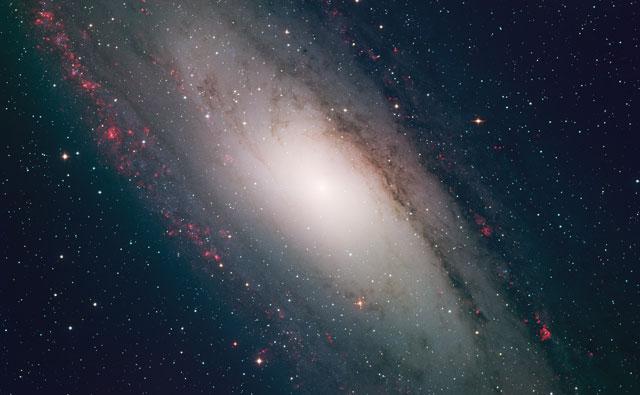
The Big Bang Theory is the theory of the origin of the universe that has the most widespread acceptance in the international science community. It posits that the entire universe began with an explosion of concentrated energy. The term “big bang” was first used to describe the origin of the universe in 1949 by an English astronomer called Fred Hoyle during an interview on BBC radio.
Astronomers suggest that the Big Bang explosion set things in motion. Not only did it create the universe, but it launched it in a literal sense. In recent decades, astronomers have observed that galaxies appear to be in moving. This motion is not a random drifting, but they seem to be moving outwardly from a distant point of origin.
Therefore, the theory holds that the Big Bang was the explosion that birthed all of the galaxies within the universe and hurled them into space like debris shooting outward from a bomb blast in all directions. Astronomers have observed that galaxies appear to be continuously moving on the trajectory set in motion by the initial explosion.
Proponents of the Theory That the Universe is Expanding
Edwin Hubble, the astronomer that the famous telescope is named for, is credited as the foremost proponent of the Expanding Universe Theory. In fact, he observed that the universe was expanding as early as 1925, before the term “Big Bang” was ever used. Other important scientists have contributed to the theory. Albert Einstein attempted to view cosmology through his famous “General Theory of Relativity.” Through his calculations, Einstein was already theorizing that the universe was not motionless as early as 1917.
Today, the Big Bang Theory as the most plausible explanation for the origin and continued movement of the universe.
